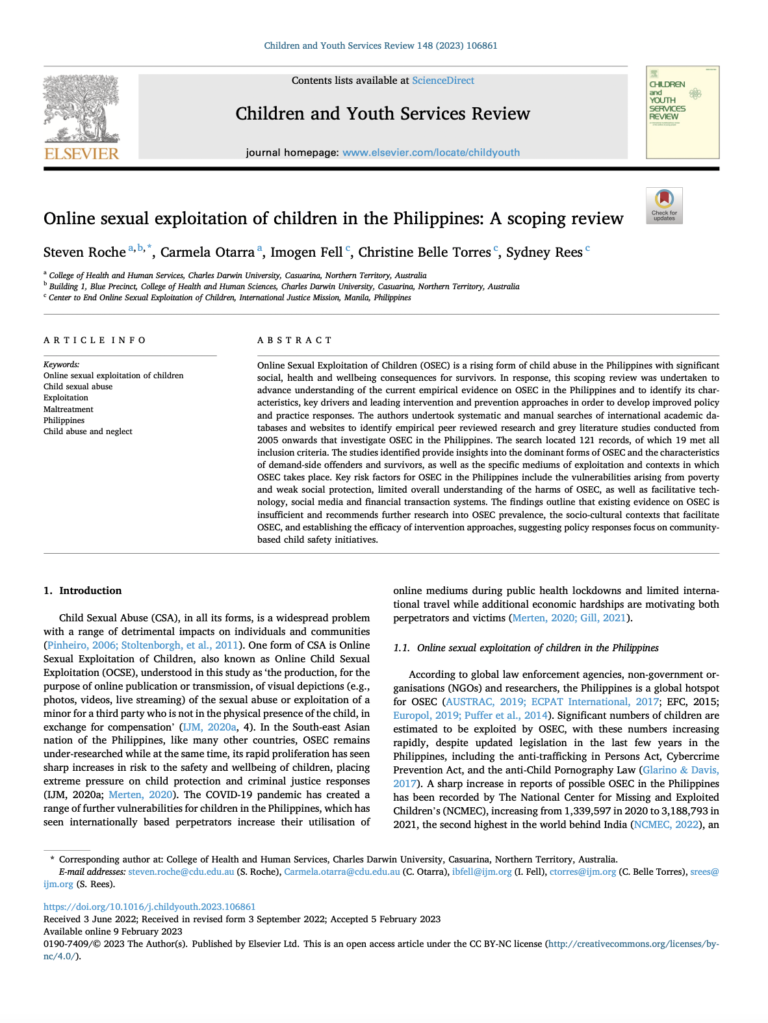Online Sexual Exploitation of Children (OSEC) is a rising form of child abuse in the Philippines with significant social, health and wellbeing consequences for survivors. In response, this scoping review was undertaken to advance understanding of the current empirical evidence on OSEC in the Philippines and to identify its char- acteristics, key drivers and leading intervention and prevention approaches in order to develop improved policy and practice responses. The authors undertook systematic and manual searches of international academic da- tabases and websites to identify empirical peer reviewed research and grey literature studies conducted from 2005 onwards that investigate OSEC in the Philippines. The search located 121 records, of which 19 met all inclusion criteria. The studies identified provide insights into the dominant forms of OSEC and the characteristics of demand-side offenders and survivors, as well as the specific mediums of exploitation and contexts in which OSEC takes place. Key risk factors for OSEC in the Philippines include the vulnerabilities arising from poverty and weak social protection, limited overall understanding of the harms of OSEC, as well as facilitative tech- nology, social media and financial transaction systems. The findings outline that existing evidence on OSEC is insufficient and recommends further research into OSEC prevalence, the socio-cultural contexts that facilitate OSEC, and establishing the efficacy of intervention approaches, suggesting policy responses focus on community- based child safety initiatives.

